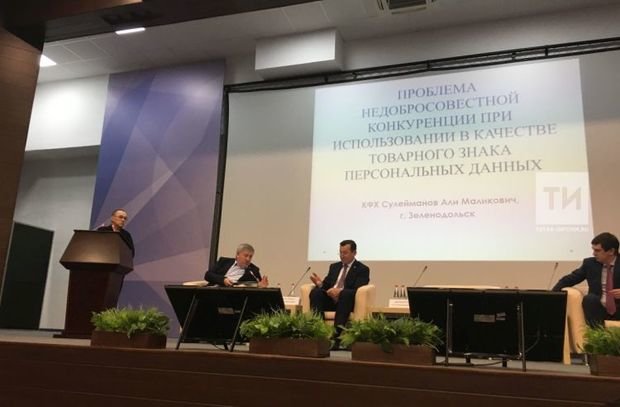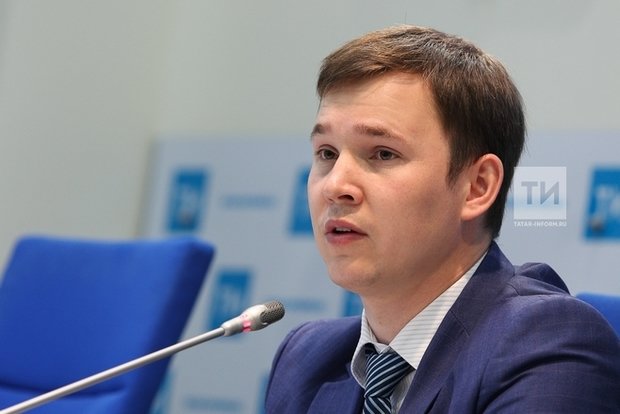The Anti-Monopoly Service’s office confused in the Net: entrepreneurs asking to protect from click fraud and regulate registration of domain names
Unfair competition became online, the anti-monopoly service doesn’t catch up with digital fraud
Unfair competition became online. If previously the fight of the Federal Anti-Monopoly Service in this sphere was against entrepreneurs making up similar trademarks, now businesses are complaining about click fraud, cloned websites and asking to regulate the registration of domain names. At an all-Russian scientific conference in Kazan, representatives of the office of the Federal Anti-Monopoly Service in Tatarstan recognised they didn't catch up with digital fraud, asked competent IT specialists to become members of staff and time to handle new challenges.
10 legal actions in 40 claims about unfair competition
40 claims were filed in the Tatarstan office of the Federal Anti-Monopoly Service in 2018 asking to inspect producers for unfair competition. 10 legal actions were taken, in 20 cases there were given instructions to fix the violations. The fines totalled 600,000 rubles.
If anti-monopolists learnt how to fight offline violations of this kind of unfair competition as a confusing similarity of trademarks, they turned out not ready for challenges of the digital era. Head expert of the Russian Federal Anti-Monopoly Service in Samara Anna Korchagina said how the regional office unsuccessfully tried to protect interests of a local sole proprietor. He provides a car towing service, put an advertisement on the Internet and understood some time later that somebody was clicking on his ad.
At the same time, the entrepreneur noticed ads of other tow trucks began to appear on the first lines of the search engine. The businessman communicated his suspicions to the Federal Anti-Monopoly Service's office, they faced this kind of unfair competition for the first time. The service started to study the problem but didn't manage to go further than suspicions.
''Competent IT experts noted that it's hard to find a person who was clicking, this process requires both time and technical resources,'' Korchagina noted.
While the Federal Anti-Monopoly Service's office lacks a sufficient number of IT specialists and time to investigate such crimes, Korchagina asked to solve the problem. Considering growth in advertising budget on the Internet, which reached 200 billion rubles in Russia last year and went ahead of other mass media, this won't be the last case.

Domain names are asked to be equated to intellectual property assets
Big businesses also face lawlessness in the Net. KAMAZ raised a problem of using trademarks in domain names. Dealmakers in Surgut created a website that allegedly belonged to KAMAZ with the word ''kamaz'' in its domain name. This, of course, inspired trust among consumers who considered it the official dealer of the lorry making giant and purchased fake components as if they were original. KAMAZ wanted to sue not only against the fake enterprise but also those who registered the domain name.
''Legal precedents show that when suing against a registering body, he turns from defendant into a third party. From a perspective of courts, the registering body isn't responsible for registering such domain names,'' representative of KAMAZ PJSC Viktoria Popova explained the problem.
According to Popova, she knows that there are 45 bodies registering domain names in Russia, and they all have income from sales. She proposed to make amendments to the Federal Law No. 149 and equate domain names to intellectual property assets and make changes to domain name registration rules.
''Registering bodies should ask the owner of copyright for permission to register domain names of at least well-known trademarks, which aren't many, about 300. And this won't cause big financial losses and a lot of effort. Or their licence must be revoked for registering names without the copyright owner's permission,'' the representative of KAMAZ PJSC offered.
''We don't have preventive measures, it's presumption of innocence''
Acting deputy head of the Federal Anti-Monopoly Service in Tatarstan Almaz Yafizov put examples of unfair competition in the Net or with the use of digital technologies.

Grid Company invited tenders for software delivery. One of the terms of participation in the purchase was an agreement with Microsoft on extension of the partner status in 2019. One of the participants of the tender changed 2018 for 2019 in Photoshop and won, when the falsification was detected, the purchase was cancelled.
A lot of crimes are committed with the help of cloned websites. The Federal Anti-Monopoly Service in Tatarstan found a website selling products of Ak Bars Hockey Club and Rubin Football Club. People thought the products were original and purchased them.
''Another case is when an entrepreneur completely copied the website of the Central Furniture House, the pictures of goods were clickable, and the hyperlink led to the website of the sole proprietor who had nothing to do with the Central Furniture House,'' Khafizov said.
The Federal Anti-Monopoly Service's office admits that now it's very hard to protect honest entrepreneurs and purchasers from unfair competition in the Net.
''We block cloned websites, but we don't have preventive measures. How to prove a website was created for illegal actions if there aren't victims? Everyone is entitled to the presumption of innocence,'' Yafizov says.